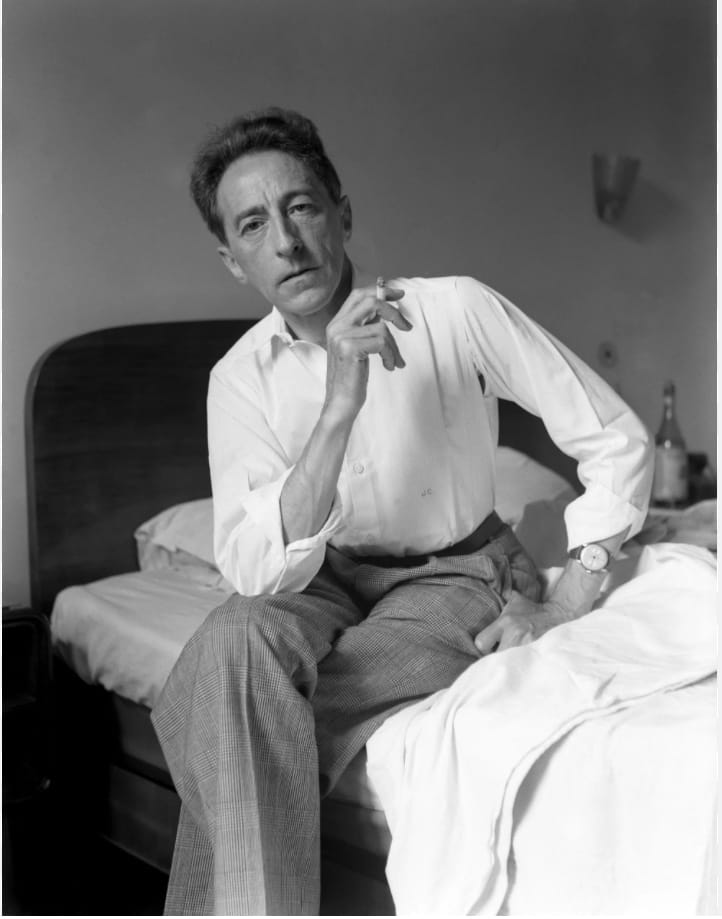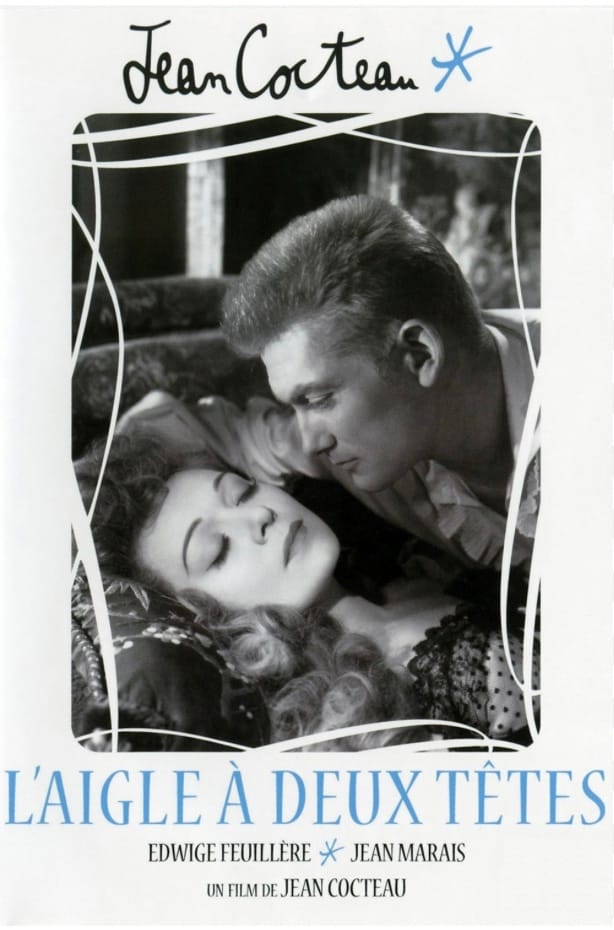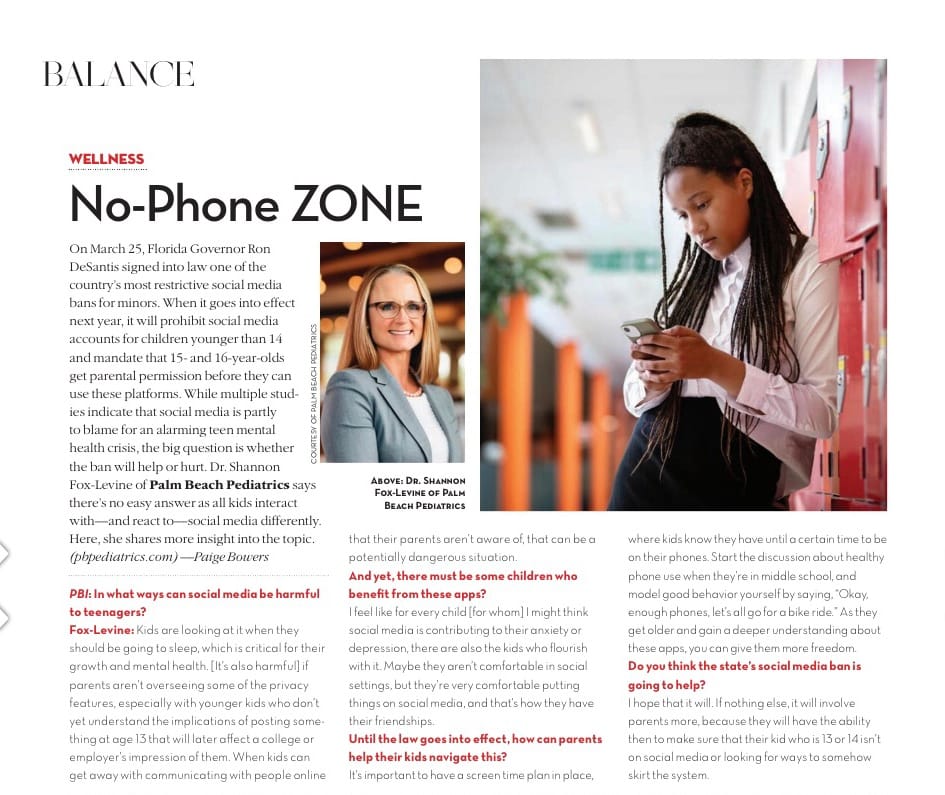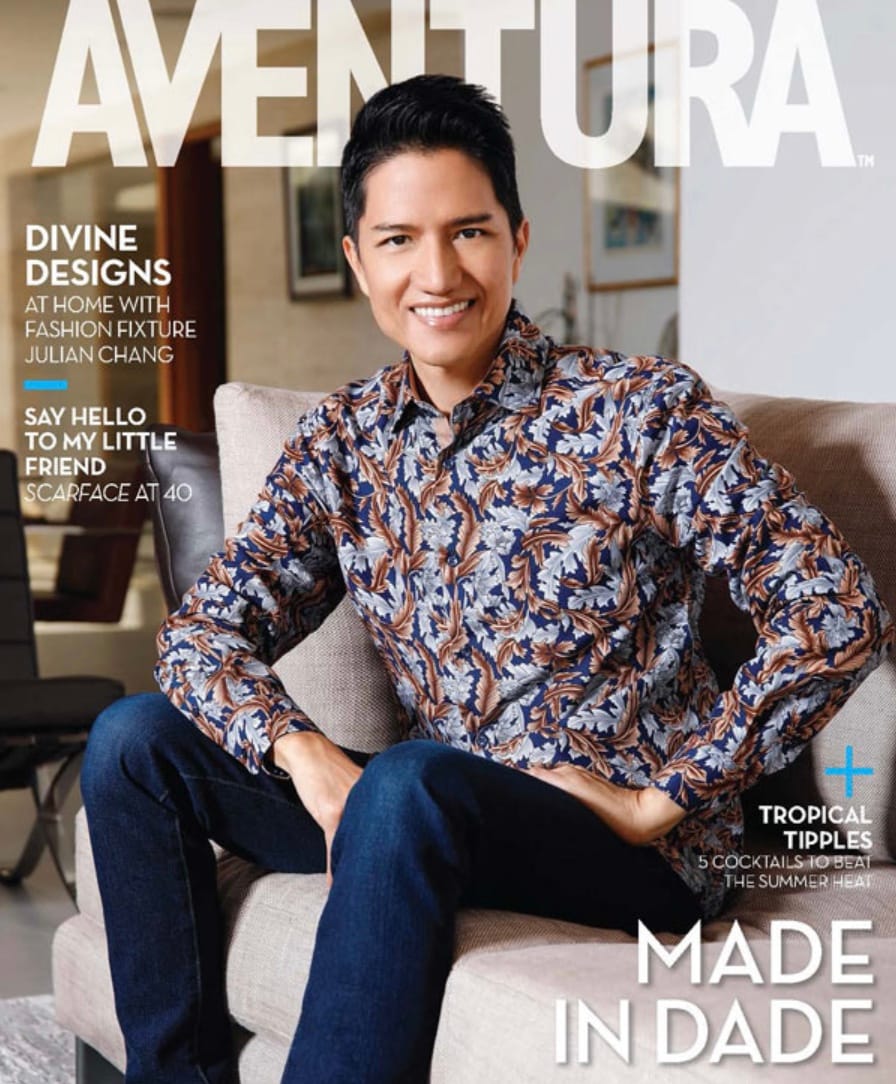The Eagle with Two Heads

When I was in France recently, I picked up a vintage movie poster of Jean Cocteau's 1946 film "Belle et la Bete" (Beauty and the Beast), which I first saw with a friend when I was in high school. I remember marveling at the special effects Cocteau was able to create in that time; my favorite was when Belle shed a tear and it turned into a diamond. Of course, you saw that there was a hint of editing going on, that teensy pause between tear and gem. But I love watching this film to see the many ways that this man had a creative idea and made it a reality with the tools he had at his disposal. It's instructive and inspiring for those of us who sit at the desk, or easel, or whatever it may be and try to figure out how to create our own little bits of enchantment, even on days when we think we can't.
When I saw the movie poster in a wonderful shop in the Cours Julien, I instantly thought of the tear-to-diamond effect. I couldn't resist buying the poster because the mere idea of that scene filled me with delight. Maybe I needed to believe I could create something shiny and beautiful too.
We shall see.
Cocteau was an interesting figure who wrote poetry, plays, criticism, and books when he wasn't creating films like "Belle et la Bete" or visual art. He insisted on calling himself a poet though, and if you look at all of his work there is a tremendous poetry to it. There's whimsy and mystery and movement and color. However, not everyone loves what he does, and not everyone understands it all the time, like when he came to New York in 1948 for the American premier of his movie "The Eagle with Two Heads."

"The Eagle with Two Heads" was based on his 1946 play of the same name. The story is about a reclusive queen who is still mourning the loss of her husband, who was assassinated ten years prior. A young anarchist poet arrives at the castle to kill the queen, but he bears a striking resemblance to the late king and so the queen calls him the "angel of death" and gives him shelter. Now you would think that's a bad move on her part, but the poet and the queen fall in love. Good for them. There's a bunch of scheming going on in the court though, and so the poet and the queen need to overcome that. When they realize they can't, the poet poisons himself and kills the queen. When the movie debuted in France, it got mixed reviews, but audiences loved the overall spectacle. When it premiered in the New York, critics had no clue what the film was about. Cocteau, in return, responded with: "Is it my fault...if you don't have my agile mind, if you treat me like an acrobat, because for forty years I've trained myself so that my soul is as fit and agile as the bodies of acrobats?"
On the plane back to France, Cocteau wrote about what he had just experienced and seen in the United States, and that writing became the slender, 1949 treatise known as "Letter to the Americans."
Here are some of his musings:
- "In New York, everything is paradoxical. You need the new but want nothing to change. The provisional failure at the beginning of all great enterprises remains incomprehensible to you; instead you take it to be the irrevocable outcome. Success to you is compulsory."
- "I write YOU, but it's not you the American people I'm talking about. I'm talking about those who, possessing money, fear risk and lose face because risk alone pays off in the end. I'm talking about the world of money and immediate return, I'm talking about the gold curtain that is as hard as the iron curtain, the gold curtain that separates America from America and America from Europe."
- "Human dignity is at stake. Be what you are. A people who preserved their childhood. A people young and honest. A people in whom the lifeblood circulates. Disentangle yourselves. Question others less and question yourselves more...Don't content yourself with those encounters where drinks are served but nothing is said. Don't disorient yourselves with vain activities. Don't surrender yourselves to the lethal vertigo of radio and television. Television encourages the mind to stop chewing, to gulp down soft, predigested food. But the mind has robust teeth. Chew things with its robust teeth. Don't let them only serve as the ornamental smiles of the stars."
- "Neither priests nor New York psychiatrists are enough for us to unburden our conscience...I pity the innumerable people who undergo treatment for treatment's sake and refuse to get well."
- "Your role is the save the dignity of humanity...For such a task you'll need to shake yourselves out of it, to wake yourselves up, to become conscious. You can no longer consider art a distraction, but instead as a priesthood."
- "You won't be saved by guns or fortune. You will be saved by the minority of those who think."
- "...even when France teeters on the edge, she still leans with a certain genius and finds a way to put in motion, against the grain, a suitably old mechanism that never ceases to surprise the world."
- "Luxury is a noble virtue that you mustn't confuse with comfort...The luxury I encourage doesn't have anything to do with money. It can't be bought. It's the reward for those who don't dread discomfort. It's a commitment we make to our own selves."
Writing prompt: What does luxury mean to you? What does it look like? What does it feel like? Smell like? Taste? How does it exist in your day to day life? What are some ways that you can infuse your day to day with the luxury of which Cocteau speaks? Remember: It doesn't have anything to do with money. Turn a tear drop into a diamond with the tools you already have.
More on Lethal Vertigo
The older I get, the more I despise smart phones and social media. If Cocteau were still alive, I think he'd believe they were right up there with television and radio. Enter Florida, which recently signed a social media ban for minors into law. Some kids may benefit from it. Others may not. It's really too early to say, but below is a Q&A I did recently(ish) with a pediatrician about the measure.

Creative Cocoon

Fashion designer Julian Chang has always been inspired by the art he sees and the creatives he meets. So, when Miami shut down during the COVID-19 pandemic and Chang couldn’t visit museums or the Design District, he started feeling stifled and stuck in his Miami Beach condominium. For a guy whose work has been defined by the mixture of cultures and textures he has experienced, Chang felt he needed more breathing room and a light-filled place that would give him more flexibility and inspiration.
I wrote about Julian's new digs and his creative endeavors for the June issue of Aventura Magazine. For more on this talented young man and his inspirations, be sure to click here for the whole story!
Endnotes
What I'm reading: Old newspapers and archives sites. Trust me. It's fun.
What I'm watching: With the kiddo home for summer, we just started watching "The Acolyte" on Disney+. It takes place before the Star Wars arc we all know and love, and involves some twin sisters who are using the force in very different ways. It's fresh. It's well-filmed. It has light sabers. And so far, I haven't lost interest, so do with that what you will.
What I'm excited about: In a moment of weakness (i.e. a friend told me to), I bought a Lego retro radio kit. So now I really, REALLY need to clean my office so I'll have room for it. The retro radio will join the retro typewriter, Vespa, VW Bus, London telephone, and independently owned bookstore on my shelves. Before you say, "How much more impractical can you be?" know that the radio has a space for your cell phone, so it can play your playlist. That, my friends, is what we call justifying our folly.
What I'm excited about, part 2: I'm seeing the Rolling Stones tonight at Mercedes Benz Stadium. The last time I saw them was when I was an undergraduate at LSU. Back then, I felt so lucky, because I thought they probably wouldn't be touring for much longer. Alas, that was thirty years ago...and they still have more energy than I do.
What I'm excited about, part 3: New starts. New coaches. A happy, healthy kid.
Where I hope you'll donate this week: We all love Dolly Parton because we're not savages. One of the things I love most about her (aside from everything) is that she is committed to getting books into children's hands, which is SO important. Please, if you can, donate whatever you can to her Imagination Library, which gives free, high-quality books to children from birth to age five. Imagination Library sends out more than 2 million books a month, but it can't do this without your help. Won't you nurture a future bookworm
Next week: I've been wanting to talk about the ocean in some way, so maybe that's where we'll head next. Stay tuned for whatever it is I cobble together. XOXOXOXO, P
Paige Bowers Newsletter
Join the newsletter to receive the latest updates in your inbox.

